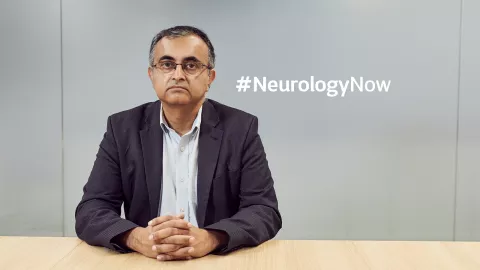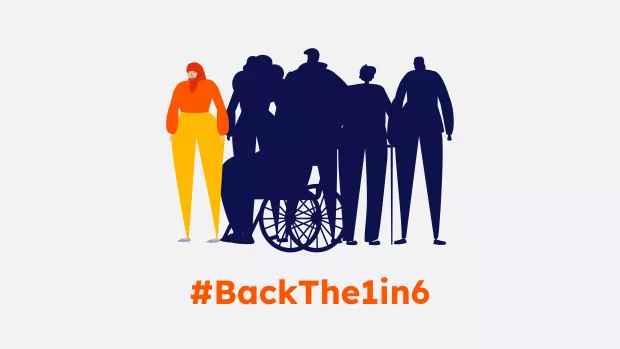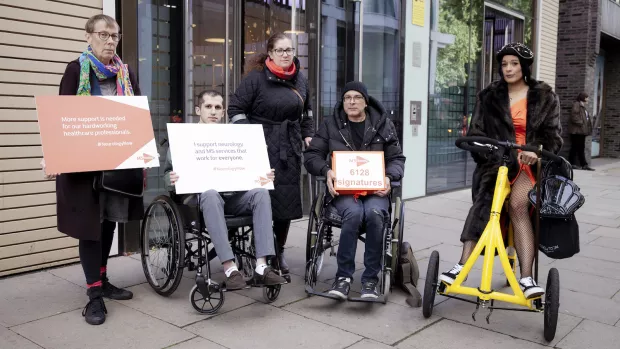
Neurology services were already vulnerable when the pandemic hit
Dr Waqar Rashid is a consultant neurologist at St Georges Hospital in London. He talks about how MS teams have come under pressure since COVID-19.
Busy times
A typical day is busy. As well as seeing people in clinic or on the ward, there’s a lot of additional issues to think about in terms of COVID-19, and vaccinations. People have lots more questions for us, and haven’t had face-to-face appointments in a while.
Face-to-face and virtual
We’re being more flexible since the pandemic started, doing virtual follow up appointments with patients. A lot of patients do want these, although I’m going to request more face-to-face follow up work as well. I’m concerned about repeated virtual calls, and not seeing people in person for a long time.
Accessing care
It’s so important people with MS can access the services they need like neurology appointments and MRI scans. There’s a lot of regional variation in waiting lists. We’re also experiencing more and more delays before us, in primary care.
If people aren’t getting the assessment that would bring them to our MS clinic, they miss out. There are delays at several points in the chain, and there’s long delays in some areas. MS nurses are closed to new patients in certain regions too.
Across the country, getting access to a neurologist in the first place is uneven. When people do get access, they might just see a general neurologist. It can be a real problem for some people to get a specialist MS opinion.
Providing a full service to people
During the pandemic services have been very variable. Some colleagues have been working with COVID-19 patients on intensive care units. While others in our team, like me, have been keeping the outpatient service running so we don’t fall behind with neurology patients. We’re trying to be flexible and working in environments using technology we’re not used to.
To varying degrees neurology services were under pressure before the pandemic. So we were more vulnerable, more exposed, when it hit.
For MS teams, there’s frustration, and determination to try and provide a full service to people. We need to keep our team of nurses, consultants, and many other staff in MS teams so we can continue to work as close to capacity as we can. We also need to expand as a team but that takes time to do.
The emotional aspect
A lot of people with MS have been in a difficult situation over the pandemic. They might have lost support structures such as support groups and seeing family and friends. People might have had a drop in quality of life, and are dealing with a lot of concern and fear around the pandemic, which can be emotionally draining.
We need to be able to retain our staff in MS teams so we can support people. This is easier said than done, because of the pressures on the NHS and capacity issues.
A lot will depend on how much pressure continues to be put on the NHS by COVID-19 and other issues.
UK governments need to act
Last year, 8,000 of us signed an open letter for our Neurology Now campaign, calling for better access to MS and neurology services. Now, we’re joining up with other organisations, because we want to see progress towards people with MS getting the vital support they need.
Delays to life-changing treatment and care, and a lack of mental wellbeing support can’t continue. Help create real change and sign the petition today.
We updated this blog on 08-06-2022



